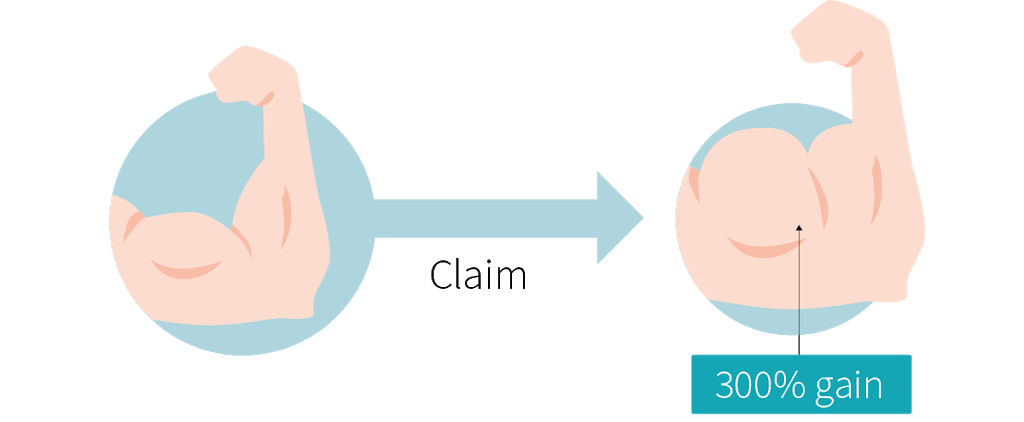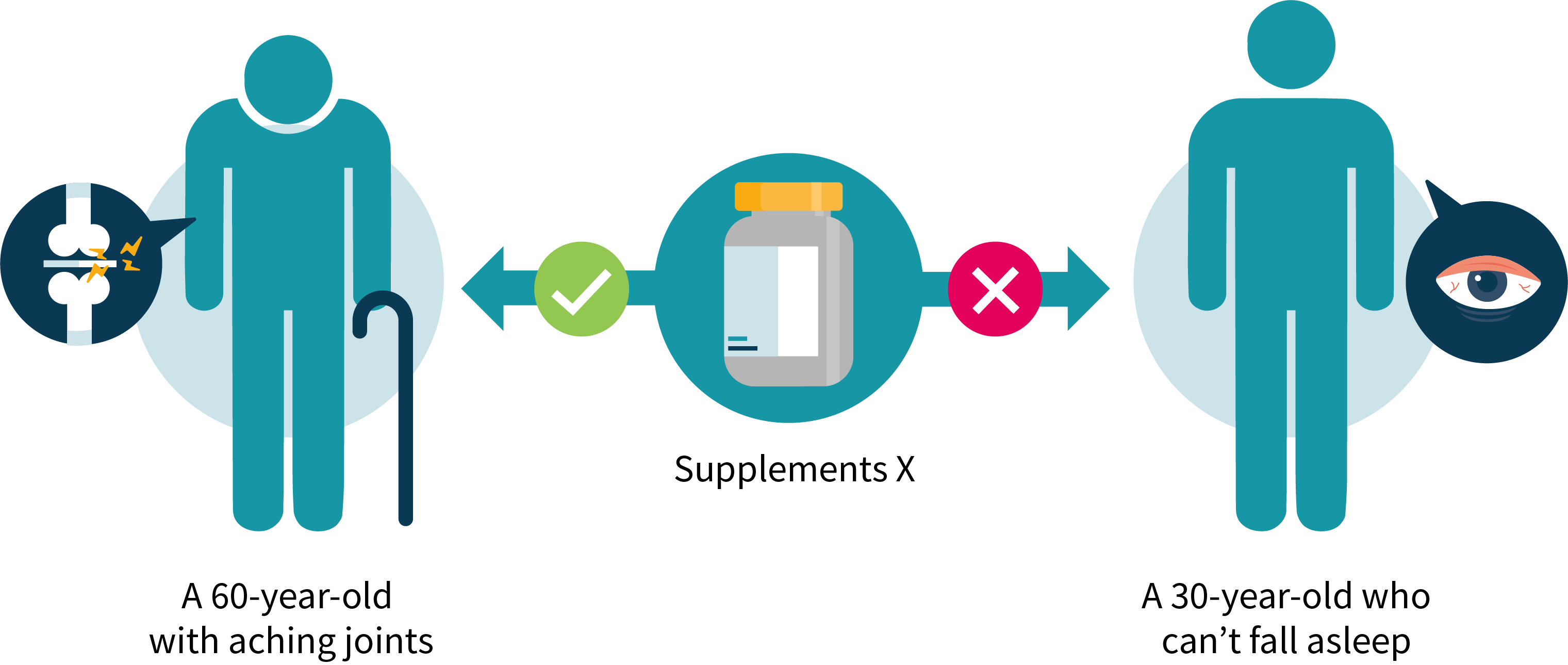Make sure the supplements you buy actually improve your health
Supplement companies are trying to make you buy supplements you don’t need
There are hundreds of supplements available for purchase, and Examine.com has analyzed over 400 of them.
With the overwhelming number of supplements you could buy, how do you figure out which ones you need?
It’s not like you can trust supplement companies; they have one goal: to convince you to buy their supplements.

Since 1994, the Dietary Supplement Health and Education Act (DSHEA) has been poorly enforced, allowing supplement companies to run wild. As long as they made no specific medical claims, it was essentially legal for supplement companies to spread misinformation and unfounded claims.
For example, glutamine, a nonessential amino acid, is heavily promoted as a muscle builder. A common marketing claim is that consuming glutamine increases muscle mass by 300%.
Take a second to flex your biceps. Now imagine them 300% bigger — you’d put Conan-era Arnold to shame!

The truth is, research did show glutamine tripled the size of muscle cells — if you injected it directly into cells in a petri dish! That doesn’t happen in your body. First, you’re not injecting glutamine, and second, your small intestines keep much of it for themselves!

So based on a technicality, supplement companies push glutamine as a muscle builder … to the tune of over $125,000,000 a year in glutamine sales!
Supplement companies also hide behind “proprietary blends,” where they don’t tell you how much of each ingredient is inside. Imagine putting stuff into your body and not knowing what dose you’re getting!

Furthermore, these companies frequently underdose the most expensive ingredients (and overdose the useless ones).
Are you getting the supplements you actually need?
Instead of relying on marketing claims, you need to figure out which supplements are worth your time and which are a waste of money.
Here’s the truth: you should take specific supplements based on your health goals. A 60-year-old with aching joints has different needs than a 30-year-old who can’t fall asleep; recommending the same supplements to them is wasteful and senseless!

Making sense of the information — and misinformation — out there can be overwhelming. There’s a ton of conflicting information online, and most of it is pushed by people trying to sell you specific supplement brands. Plus, reading scientific research is a complex skill that requires specific education and expertise.
This is where we can help.
We do not sell any supplements
Examine.com’s only goal is to break down and make sense of research. Not only do we not sell supplements, but we also don’t recommend any brands, nor do we do any consulting or accept advertisements, donations, or sponsorships.
We are 100% independent and extremely serious about being unbiased when it comes to nutrition and supplement information.
We only care about the science. It’s why millions of people visit us every month, why professionals from major sports leagues rely on us for nutrition and supplement analysis, and why we have tens of thousands of customers.
To that end, we created the Supplement Guides to help you level up your knowledge and take only the supplements that are proven to work — and skip the ones that waste your time and money.
Some of the interesting things you’ll learn inside our Supplement Guides:
- The vegetable that will give you a better pump than most commonly sold nitric oxide boosters.
- A few key minerals and vitamins where, if you are deficient in them, can result in having below-average testosterone levels.
- The vitamin that combines with vitamin D and calcium to help strengthen your bones!
- The supplement that not only amplifies the effect of caffeine but also reduces the anxiety or jitteriness you can get!
- History of skin cancer? This mineral may help reduce your risk.
- Looking to improve your hair? Don’t waste your money on this wildly popular supplement.
- Creatine not giving you an exercise boost? We can show you how to fix that.
- How your protein needs change based not only on your health goals, but your age.
- How timing your carbohydrate intake can increase exercise performance.
- Diabetes? You may become deficient in certain minerals…
- How you may be using sunscreen incorrectly (and how to use it properly).




